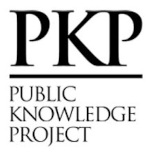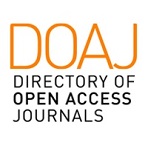The assemblage plant
DOI:
https://doi.org/10.29147/datjournal.v7i1.561Keywords:
Biomimetics, Plants, Complex Systems, AssemblageAbstract
The Anthropocene is a consequence of the great acceleration caused by technological advances, in which the human presence reconfigures the world from the perspective of the agency. The understanding of assemblage is the various philosophical currents that constitute the notion of a system. This article discusses the implications of understanding systems and agency in the Poetics of Complexity in Deleuze’s and Gilbert Simondon’s Assemblage. This discursive trajectory aims to position a bio-referenced aesthetic production in plants. This analysis defines plants as networks in exchange for information, made up of autonomous parts of computability and decidability. This plant is dependent on the construction of an associated medium for its survival. It is an assemblage. In defence of this notion of plant assemblage, the article then returns to discussions in the field of the Anthropocene. Since the concretization of this species creates cases of different levels of hybridization, the poetic powers of artistic creation present themselves as disruptions between the borders of the natural and the artificial.
Downloads
References
ASSIS, P. Introduction: Assemblage and Artistic Research. In Assis, Paulo., & Giudici, Paolo. (2020). Machinic Assemblages of Desire: Deleuze and Artistic Research 3. Leuven: Leuven University Press. p.11 -25. DOI: https://doi.org/10.2307/j.ctv1595mb9.4
BERGAMO, MARILIA LYRA. Knobby Clubrush: Neurobiologia e Arte Robótica. Em: VENTU¬RELLI, S. 19 Encontro Internacional de Arte e Tecnologia (#19.ART). 19 Encontro Inter¬nacional de Arte e Tecnologia (#19.ART), 1 jan. 2020. p.236 -248.
BERGAMO, MARILIA LYRA. Arte Computacional Botânica: Argumentações sobre a repli¬cação do modelo de comportamento de plantas. Em: Mariana Ribeiro Tavares; Mauricio Silva Gino. (Org.). Pesquisas em animação: cinema e poéticas tecnológicas. 1ed.Belo Horizon¬te: Editora Ramalhete, 2019, v. 1, p. 217-230.
CABRAL, A.; VENTURELLI, S.; PRADO, G. Sinais detectados entre o biológico e o maquíni¬co. DAT Journal, v. 4, n. 3, p. 117–127, 6 dez. 2019. DOI: https://doi.org/10.29147/dat.v4i3.152
HUI, Y. On the Existence of Digital Objects. Illustrated edição ed. Minneapolis: University of Minnesota Press, 2016.
MCCORMACK, J. ; BERGAMO, M. L. Poetics of Complexity Intersections between scientific conceptions of Complexity Systems and Cybernetic Art. In: International Conference on Digital Creation in Arts and Communication, ARTeFACTo2020, 2020, Faro. ARTeFACTo2020: International Conference on Digital Creation in Arts and Communication. Faro: Artech In¬ternational, 2020. v. 1. p. 59-65.
NOVA, N. e Disnovation Org (ed).A Bestiary of the Anthropocene: Hybrid Plants, Animals, Minerals, Fungi, and Other Specimens. Eindhoven: Onomatopee, 2021.
PRADO, G. Project Amoreiras (Mulberry Trees): Autonomy and Artificial Learning in na Urban Environment. Leonardo 2018 51:1, 61-62. https://doi.org/10.1162/LEON_a_01557 DOI: https://doi.org/10.1162/LEON_a_01557
SAUVAGNARGUES, P. OF C. F. P. A. Artmachines: Deleuze, Guattari, Simondon. Tradução de VERDERBER, S.; HOLLAND, E. W. 1ª edição ed. Edinburgh: Edinburgh University Press, 2016. DOI: https://doi.org/10.1515/9781474402552
SIMONDON, G.; MALASPINA, C.; ROGOVE, J. On the Mode of Existence of Technical Objects. [s.l.] University of Minnesota Press, 2017.
ZUKAUSKAITÈ, A.Planetary Assemblages: From Organic to Inorganic and Beyond. In Assis, Paulo., & Giudici, Paolo. (2020). Machinic Assemblages of Desire: Deleuze and Artistic Research 3. Leuven: Leuven University Press. p. 298-309



























